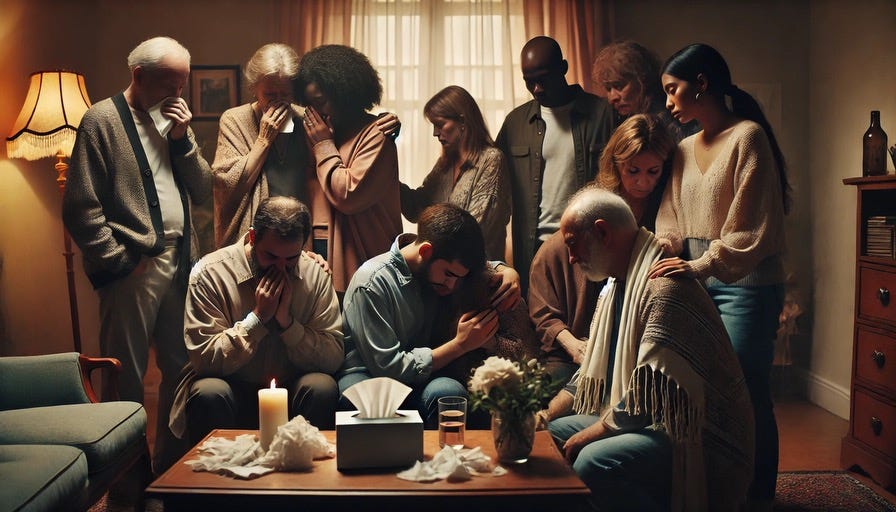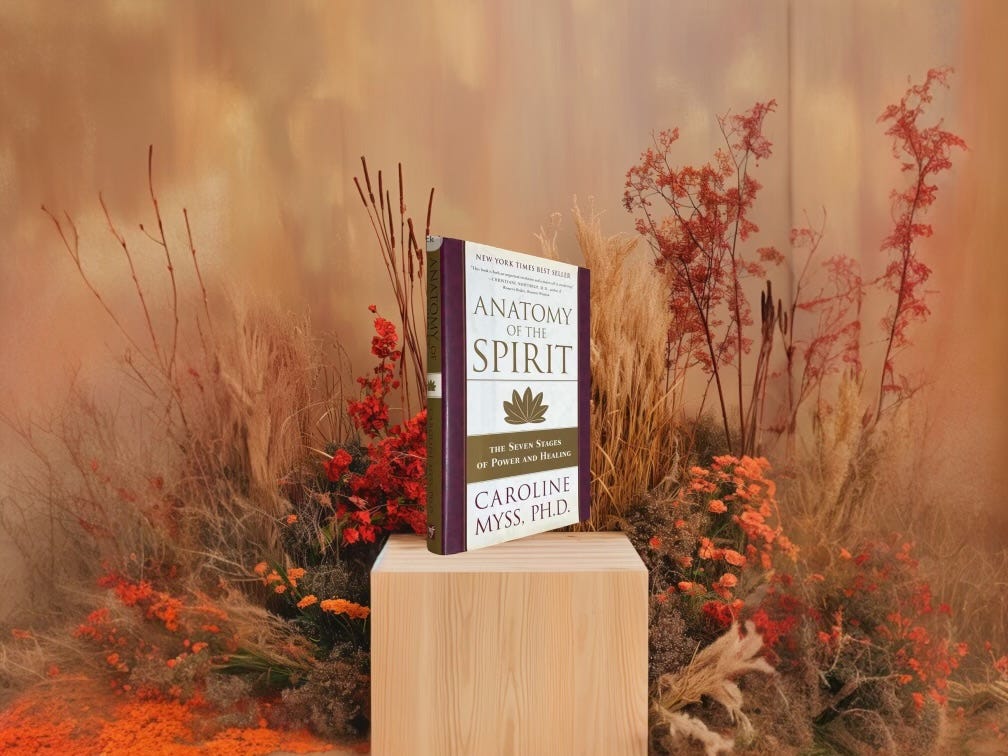In one of my all-time favorite books, Anatomy of the Spirit, author Carolyn Myss offers a piercing analysis of how humans cling to their pain, forging identities rooted in suffering rather than transcendence.
Myss coined the term “Woundmates” to describe relationships where individuals bond through shared pain, perpetuating cycles of victimhood rather than seeking growth or liberation.
This dynamic is particularly resonant during times of collective upheaval, such as the 2024 U.S. presidential election, which has left many marinating in wounds of division, fear, and disillusionment.
From a Kabbalistic, Jewish mysticism perspective, Myss challenges us to see our wounds not as prisons, but as initiations — opportunities to align with the divine and fulfill our higher potential.
The Tree of Life, a central symbol in Kabbalah, offers a roadmap for healing by inviting us to ascend from lower states of consciousness, defined by ego and suffering, to higher realms of unity and wisdom.
This sacred framework suggests that wounds are not endpoints but catalysts for transformation, provided we learn to reinterpret their meaning.
The Trap of Woundmates in a Fragmented World
The recent U.S. election has amplified societal fragmentation, with millions feeling wounded by the perceived betrayal of ideals, the erosion of civility, and the breakdown of democracy.
It is easy to see why many of us might retreat into the comfort of Woundmate relationships for those who share our grievances seem to validate our pain. However, as Myss warns, this dynamic reinforces stagnation rather than growth.
Woundmates echo each other’s hurts, creating an emotional echo chamber that perpetuates victim consciousness. This collective mindset not only fuels resentment but also blinds us to the sacred lessons embedded in suffering.
We become tethered to the “Why me?” mentality, unable to ask the far more liberating question: “What is this teaching me?”
Kabbalah’s Wisdom: Moving From Malkuth to Kether
Kabbalah offers profound guidance for transcending woundedness. The Tree of Life begins with Malkuth, the earthly realm, where the weight of our wounds often feels heaviest.
Malkuth represents our material struggles and disconnection from divine purpose. However, the path upward invites us to climb toward Kether, the crown of divine unity, where we transcend ego-driven narratives and embrace a broader cosmic perspective.
This ascent requires surrender and trust. As Myss suggests, healing begins with the willingness to release our identity as “the wounded” and accept our role as co-creators of our reality.
Through the lens of Kabbalah, this involves balancing the sefirot (divine attributes) of Chesed (compassion) and Gevurah (strength) to cultivate Tiferet, the harmony that transforms pain into spiritual insight. The process is not about denying our wounds but rather integrating them into a story of resilience and transcendence.
Reshaping Collective Wounds
The election season has left many feeling betrayed by institutions, neighbors, and even themselves. Yet, Kabbalistic wisdom reminds us that wounds are opportunities to birth new realities. By embracing collective wounds as catalysts for growth, we can create a higher vibrational field of compassion and understanding, rather than perpetuating cycles of blame and division.
To reshape these wounds, we must embody the spiritual practice of tikkun olam—repairing the world. This begins with repairing ourselves, recognizing that healing is contagious. When we resist the pull of Woundmate relationships and instead rise into conscious connections, we dismantle the narratives that perpetuate division.
Overcoming woundedness is not an act of forgetting but a sacred act of remembering our divine potential. As we rise through the sefirot, we reclaim the power to transform pain into wisdom, fear into courage, and division into unity.
The question is no longer, “Who hurt us?” but “How can we heal?” In this shift, we liberate ourselves from the bonds of Woundmates and step into a higher collective destiny.
I invite you to subscribe today as a member supporter. Or I’d be grateful if you’d tip me some coffeehouse love here. Your contributions are appreciated!
Every bit counts as I strive to deliver high quality feature articles into your inbox on a daily basis. Never any paywalls, just my raw thoughts that are open to everyone on what it means to be human.







Great post, Diamond-Michael. I've added an embed to it at the bottom one I published last night. I think they are perfect companions. https://melpine.substack.com/p/the-self-the-ego-and-the-group
Profound: The question is no longer, “Who hurt us?” but “How can we heal?” In this shift, we liberate ourselves from the bonds of Woundmates and step into a higher collective destiny.
Sounds simple and easy, like making Jello. But it won't be, I know. Still, I'll boil some water, break out the Jello mold, and try.